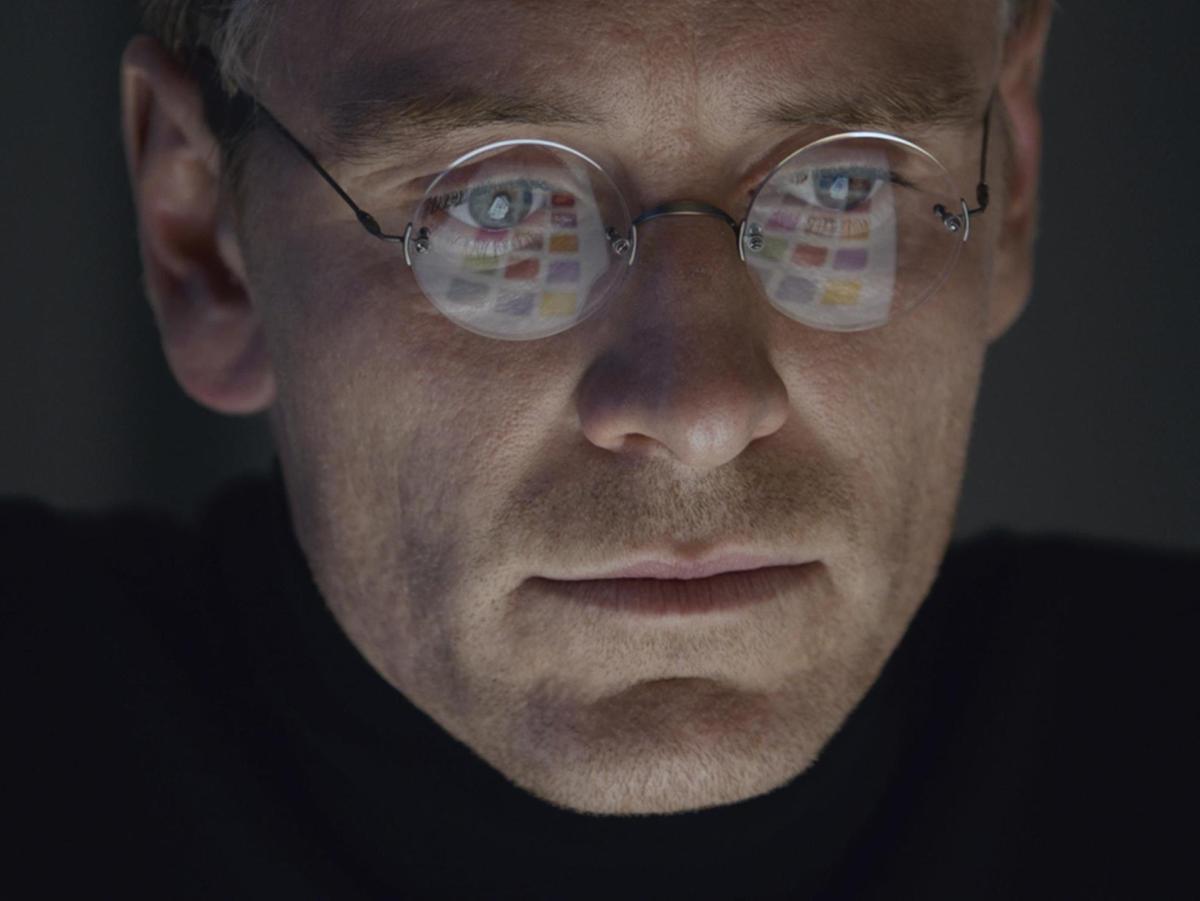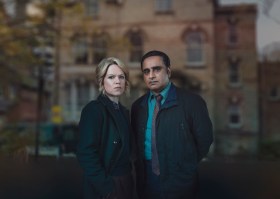Steve Jobs may champion one man’s name; however he’s not the only person in the film’s spotlight. Michael Fassbender (Macbeth) plays the Apple co-founder, Danny Boyle (Trance) directs the fictionalised re-enactment of three of the company’s product launches, and Aaron Sorkin (The Social Network) rewrites the speeches the former utters and the tale the latter brings to the cinema. While Jobs remains the narrative’s focus, Fassbender adds another commanding portrayal to his resume, and Boyle brings his penchant for fluidity — if not his usual pronounced flair — it is Sorkin’s voice that echoes the loudest. The screenwriter doesn’t only gift the feature his words, but with his fast-paced, fast-talking and walking, witty barb-laden, winking one-liner-heavy approach, as familiar to viewers of television’s The West Wing and The Newsroom.
Initially, that’s a welcome development, particularly in finding a new way to dissect a figure who has already been seen three times prior on the big and small screens (in 2013’s Jobs, iSteve from the same year, and 1999’s Pirates of Silicon Valley), and also informed several documentaries (including 2015’s Steve Jobs: The Man in the Machine). A regular biopic, Steve Jobs is not, with getting to the essence of its subject via heightened windows into his life rather than scrolling through a chronology of his existence its intention. As Steve Jobs works through its 122-minute running time, however, Sorkin’s overt imprint eventually proves testing. Indeed, in the scribe’s adaptation of Walter Isaacson’s biography of the same name, the film becomes one of dialogue as drama, and of interest sustained through the feature’s structure and performances more than its conversation. What first engages soon grates; here, a little bit of Sorkin goes a long way.
A trio of events provide the feature’s portal into its titular computing innovator: the 1984 unveiling of the Apple Macintosh; the 1988 launch of the NeXT Computer by Jobs’ post-Apple venture; and the 1998 debut of the iMac, upon his triumphant return to the tech giant. As he prepares for each, last-minute issues arise, spanning technical troubles, professional politics and his messy private affairs. His head of marketing, Joanna Hoffman (Kate Winslet, The Dressmaker), is ever-present, offering advice about his woes as she attempts to usher him through the minutiae of his schedule. Fellow Apple co-founder Steve Wozniak (Seth Rogen, The Night Before) also hovers around, campaigning for more credit for the many workers that have made each product possible, and advocating — without explicitly saying so — for his own recognition.
The confrontations continue, spanning conversations with CEO John Sculley (Jeff Daniels, The Martian) and original Mac team member Andy Hertzfeld (Michael Stuhlbarg, Trumbo) as well. On the personal side of things, Jobs’ ex-girlfriend Chrisann Brennan (Katherine Waterston, Sleeping With Other People) pops up with her daughter Lisa Brennan-Jobs (played by Makenzie Moss, Ripley Sobo, and Perla Haney-Jardine at different ages), bringing the topic of paternity — a fitting one for a movie concerned with a creator struggling with his legacy — into play. Once the first chapter establishes the various dynamics of each interaction, subsequent sections offer up repetition as revelation, probing the prominent relationships in Jobs’ life, as well as his cut-throat business manner and his wealth of insecurities. Deconstructing the myth of the man might be the feature’s aim, but its layers of chatter add the sheen of contrivance and obviousness more than they humanise its entrepreneurial protagonist or show his subtleties and nuances.
More interesting and involving is the look of the film and the efforts of its on-screen talent, with both jostling with Sorkin for supremacy. Cinematographer Alwin H. Küchler (Divergent) shoots the three segments of the feature on 16mm, 35mm and digital, which affords visual texture and complexity that Boyle’s mostly muted style doesn’t otherwise offer. Fassbender does the same, his meticulous mannerisms more telling than much of what he’s saddled with saying, and his performance of Jobs’ notoriously overblown persona one of potent observation simmering behind seeming force. The Academy Award-nominated thespian is capably supported by the rest of the ensemble cast, though a bespectacled, accented, similarly applauded Winslet proves the other standout, as well the actor best able to imbue Sorkin’s prose with humility and reality behind its desired for sense of importance.
The script’s certainty about its significance neve falters, though a mid-film pronouncement by the stressed executive proves most telling. Responding a question about the role he really plays in bringing technological advancements to fruition, Jobs exclaims, “I play the orchestra” — and it’s not hard to imagine Sorkin saying the same thing. Indeed, the screenwriter has crafted an effort about the nature of genius that purports to unpack one man’s influence while actually reinforcing his own. Those within his orbit might be doing their best to earn their own recognition, with some succeeding more than others, but they remain — as Steve Jobs does — in his shadow.
Rating: 3 stars out of 5
Steve Jobs
Director: Danny Boyle
USA | UK, 2015, 122 mins
Release date: 4 February
Distributor: Universal
Rated: M
Actors:
Director:
Format:
Country:
Release:





